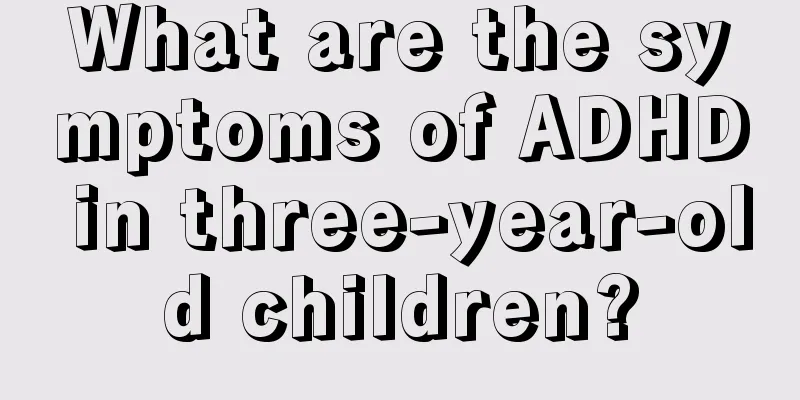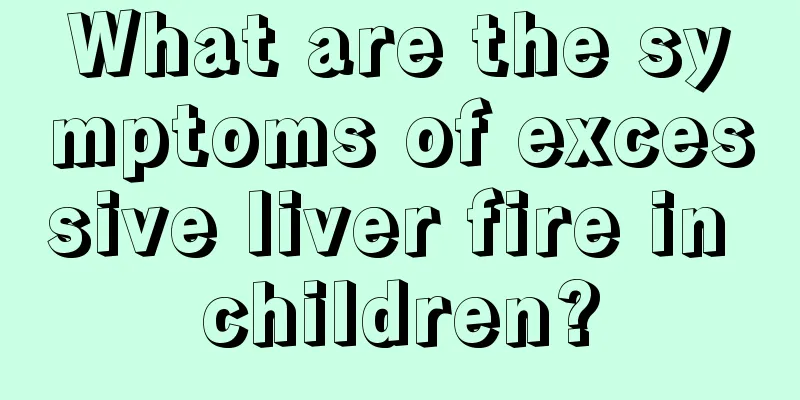What is the disease of children's abdominal twitching?

|
If your child's stomach twitches involuntarily, it may be a symptom of childhood tics. Some parents do not understand this situation very well and are anxious to take their children for various examinations and treatments. In fact, as long as the child's activities and eating are normal and there are no other obvious adverse behaviors, childhood tics can completely resolve and even heal on their own. Children's tics are manifested as short, rapid, sudden, involuntary movements of varying degrees, starting with frequent blinking, squinting, sniffing, pursing, opening the mouth, sticking out the tongue, nodding, twisting the neck, etc. As the disease progresses, the tics become more diverse, appearing alternately as shrugging, twisting of the neck, shaking of the head, kicking of the legs, shaking of the hands, or twitching of the limbs. The symptoms are often more obvious when one is emotionally tense or anxious, and disappear after falling asleep. There are often multiple types of tics, with explosive and repetitive vocalizations, throat clearing and snoring, unclear individual syllables, words, improper stress or constant foul language, and a temperament that is often impatient, willful and irritable. It is often accompanied by inattention in class or poor academic performance. In severe cases, movements and pronunciations affect learning and classroom order. The symptoms of tics may be fluctuating, progressive, or chronic. How to treat children's abdominal twitching 1. During the transition period between spring and autumn, because spring and autumn are the seasons when colds are frequent, parents should pay attention to their children's physical condition, add clothes to keep warm in time, and prevent their children from catching a cold, because once a cold occurs, it is easy to cause the child's condition to relapse and worsen. 2. Do not let your children watch programs or videos with intense content, and try not to let your children play games, because some games contain stimulating parts, which can easily cause psychological reactions in children and cause recurrence of some illnesses. Secondly, parents should also pay attention to their children’s food hygiene. There are many food additives nowadays, some of which will directly affect the central nervous system dysfunction of children and aggravate their condition. 3. Don’t mention her (his) symptoms in front of the child. Pretend not to see the child’s actions at all. Praise the child more and be patient and confident when communicating with the child, and try to divert the child’s attention. At the same time, you should also participate in various games and activities that your children are interested in to cultivate their independence and divert their attention. This is very helpful for children's symptoms. Precautions for children's abdominal twitching If the child sucks in his stomach when twitching, parents must create a relaxed and happy living and learning environment for the child. Do not deliberately pay attention to the child's symptoms and cause some mental stress to the child. This will greatly alleviate your child's symptoms. |
<<: What fruit is good for children with phlegm?
>>: What should I do if my child is scalded by boiling water? Parents can do this
Recommend
What to do if a 17-year-old has endocrine disorders?
Most endocrine disorders at the age of 17 are cau...
What should we do if children get food poisoning?
Food poisoning is a common disease that is quite ...
Is it normal for a newborn to breastfeed for a short time?
Having a new baby in the family is a major event ...
Why do children get millet-sized bumps on their bodies?
Small bumps often appear on people's skin. So...
What to do if your child stutters?
In daily life, I believe that many parents are no...
Small yellow blisters on the hands of newborns
In our lives, many babies will have small yellow ...
What is the reason for a four-month-old baby to have a fever and diarrhea?
Some newborns will have loose watery stools. The ...
How can children build muscle?
Many children like sports since childhood and wan...
What should I do if my baby has a fever and doesn't want to eat?
It is normal for children to lose their appetite ...
What is the growth standard for an eight-month-old baby?
In 2015, many people born in the 1990s have becom...
At what age does the skull take shape?
As we all know, children's bones are relative...
What should you pay attention to when your child loses teeth?
Only by having healthy teeth can you ensure a nor...
How to give eye drops to children?
We have all used eye drops in our lives, which we...
What are the symptoms of a dislocated wrist in children?
Very young children are usually very energetic an...
Why is my baby breathing rapidly and wheezing?
It is very common for babies to breathe rapidly a...









